Report spotlights “invisible” foreign minors
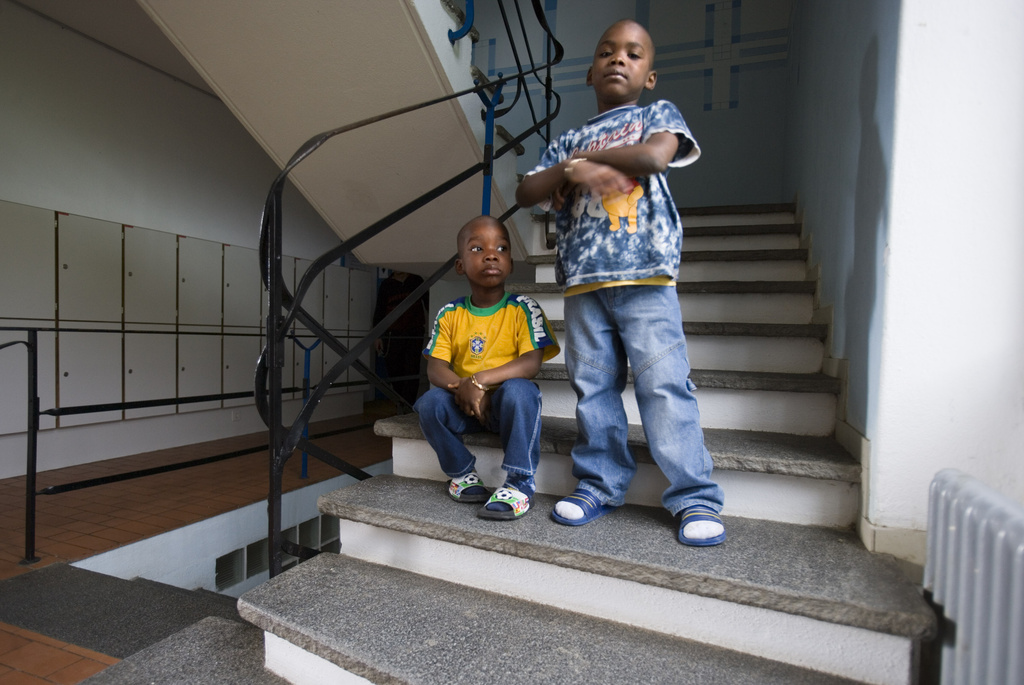
Thousands of foreign unaccompanied children disappear each year from European reception centres and institutions, according to the Swiss charity Terre des hommes.
The Lausanne-based agency has presented a report on this “hidden problem” following an in-depth investigation in 2008-2009 in Switzerland, France, Belgium and Spain.
“The most shocking thing is that nobody talks about this issue,” Sofia Hedjam, main author of the Terre des hommes study, told swissinfo.ch. “This is not a marginal phenomenon; it’s a social reality.”
According to official statistics, in 2008 there were 631 unaccompanied minor asylum seekers in Switzerland, 1,393 were registered in Belgium and 5,000 in France; no figures were available for Spain.
But up to half of foreign minors vanish each year from certain reception centres in the four countries, many in the 48 hours after being admitted, revealed the report, which was presented in Geneva on January 29.
“Minors are disappearing from institutions where authorities have placed them for their protection – this is the paradox,” said Bernard Boeton, head of the child rights division at Terre des hommes.
The children seek asylum in Europe from around the world. Most are boys and the average age is 14. But some are as young as eight.
Researchers say they later disappear from centres for a variety of reasons: to look for work, to reach another country, out of fear of being sent home, to join an outside “network” or due to direct and indirect pressure from the authorities.
But once outside the centres, they become exposed to risks such as worsening physical and psychological health, drugs, delinquency, prostitution and trafficking, the report added.
Swiss problems
Of the 631 young unaccompanied minors who applied for asylum in Switzerland in 2008, most came from Somalia, Nigeria, Guinea, Gambia and Iraq. Eighty-two per cent of those applying were boys; the girls came mostly from Nigeria, Somalia and Eritrea. The majority are aged between 15 and 18.
The researchers say that problems in Switzerland are largely the same as those in the other countries under investigation.
“There are disparities of treatment between centres and between cantons,” said Hedjam.
It is difficult to obtain figures regarding the numbers who vanish from Swiss centres, but the report cited a federal migration official who anonymously estimated the figure at 40 per cent.
But this was denied by the Federal Migration Office.
“We do not keep statistics on missing unaccompanied children. We do not wish to comment on these figures. But it’s nothing more than a few isolated cases every year,” migration office spokesman Michael Glauser told Tages-Anzeiger newspaper.
In Switzerland and Spain various means are used to pressure minors into leaving centres, added Hedjam.
“One official told me that cantonal and federal authorities openly told minors that they are not welcome and have no future here and the best thing would be to disappear,” said the researcher.
Swiss centres lack training to deal with minors, she added, at the same time there is a big problem with youngsters getting involved with drug dealing once in Switzerland.
Poor follow up
The research team also found that in the four countries departures are not properly followed up. After vanishing, most centres announce the child’s absence to the police, said Hedjam.
“There is usually an active search when the disappearance is considered worrying, but in reality not much is usually done,” she said.
Another consequence is that after a short period minors are usually deleted from different databases.
Who is legally responsible in the case of a disappearance of an unaccompanied minor – the centre, a guardian or tutor, or the state, asked Hedjam.
“Many professionals, including judges, believe there is a real legal vacuum with respect to this issue,” she said.
Legal instruments
However, numerous international legal instruments exist governing the responsibility of states for unaccompanied children, notably article 20 of the United Nations Convention on the Rights of the Child.
“Unaccompanied minors have a right to the same attention and benefits as all the other children in care. If a child, whatever his status, and for whatever reason, disappears from an institution, every usual procedure must be set in motion: the responsibility of the institution and that of the state is involved,” said Jean Zermatten, vice-president of the United Nations Committee on the Rights of the Child.
To try to improve the situation Terre des hommes is calling for the harmonisation of data on minors and asylum practices and better collaboration both within countries and at the European level.
Foreign unaccompanied minors are a very sensitive issue for the general public and politicians as they are assimilated with delinquents, said Boeton.
“But the paradox is that there is more insecurity when they disappear than when they are properly monitored,” he said.
Simon Bradley, swissinfo.ch
Switzerland faces similar migrant challenges to those of other countries in Europe. In recent years it has received large numbers of asylum seekers, the majority of whom do not qualify for refugee status or residence in Switzerland.
In September 2006 two-thirds of voters backed new laws on immigration and asylum, which the government said were necessary to make Switzerland less attractive and to curb abuses. It was the ninth time since 1984 that Switzerland’s asylum law had been amended.
As a result asylum seekers who cannot produce identity papers within 48 hours without a credible reason have been automatically excluded. Rejected asylum seekers are barred from regular welfare benefits and qualify only for food and shelter.
Rejected asylum seekers who refuse to leave the country face detention of up to two years.
Switzerland received fewer asylum applications in 2009 than in the previous year: a total of 16,005 applications were submitted, 3.6 per cent down on 2008.
In Switzerland an unaccompanied minor is defined by the right of asylum as being a child who has been separated from both parents and is not being cared for by an adult who, by law or custom, is responsible for doing so.
In Switzerland, the only legal possibility of staying for unaccompanied foreign minors is asylum. The minors must first go to one of the four registration and proceedings centres where their asylum application is registered. The minors are then assigned to a district.

In compliance with the JTI standards
More: SWI swissinfo.ch certified by the Journalism Trust Initiative

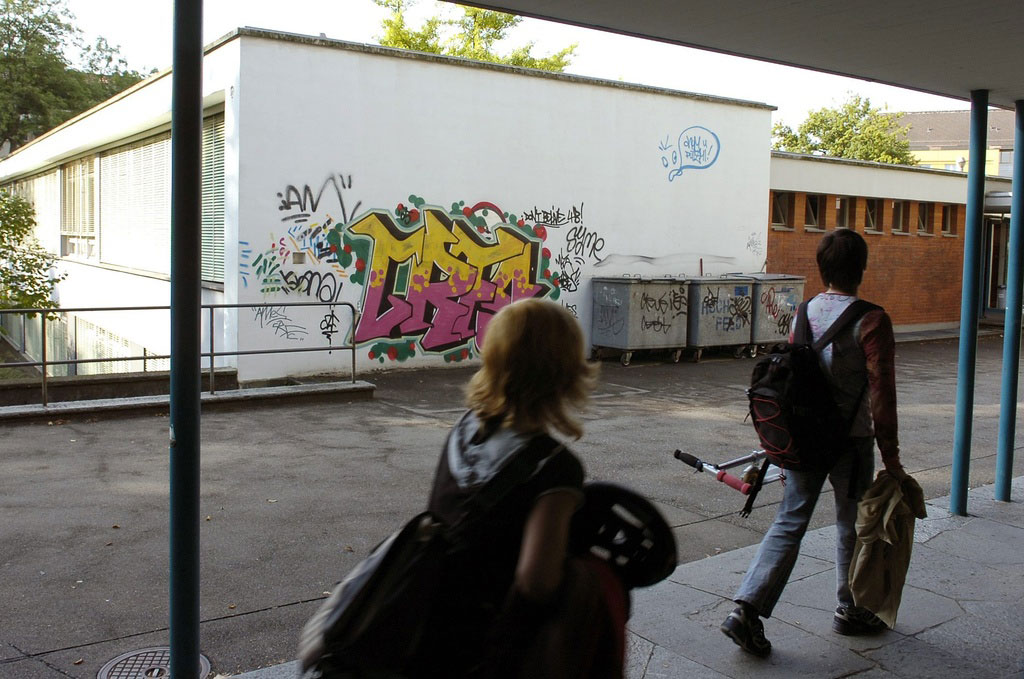
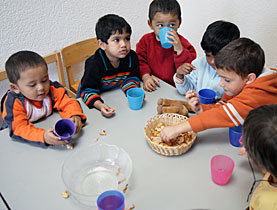
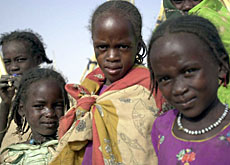
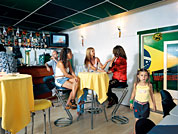
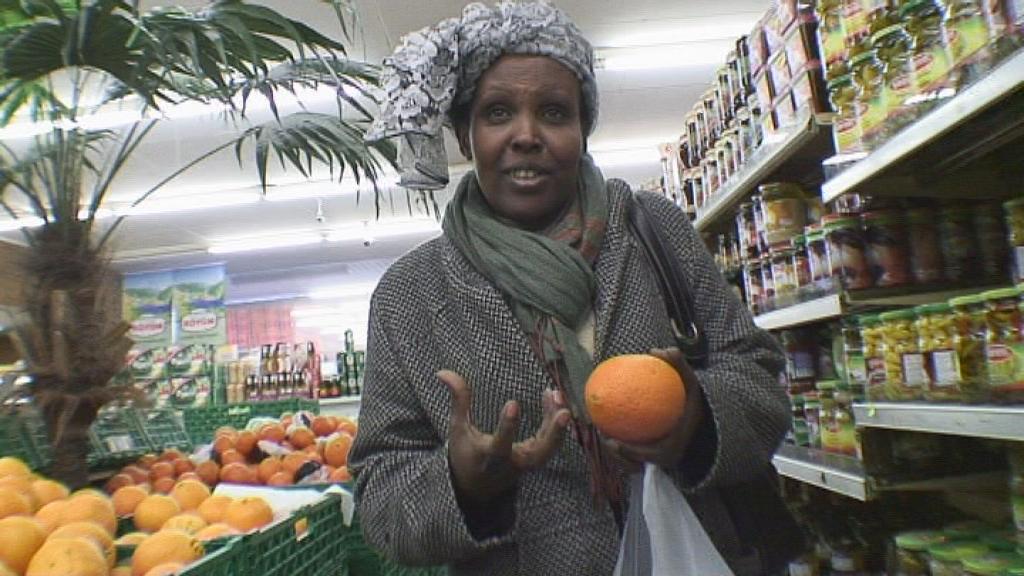
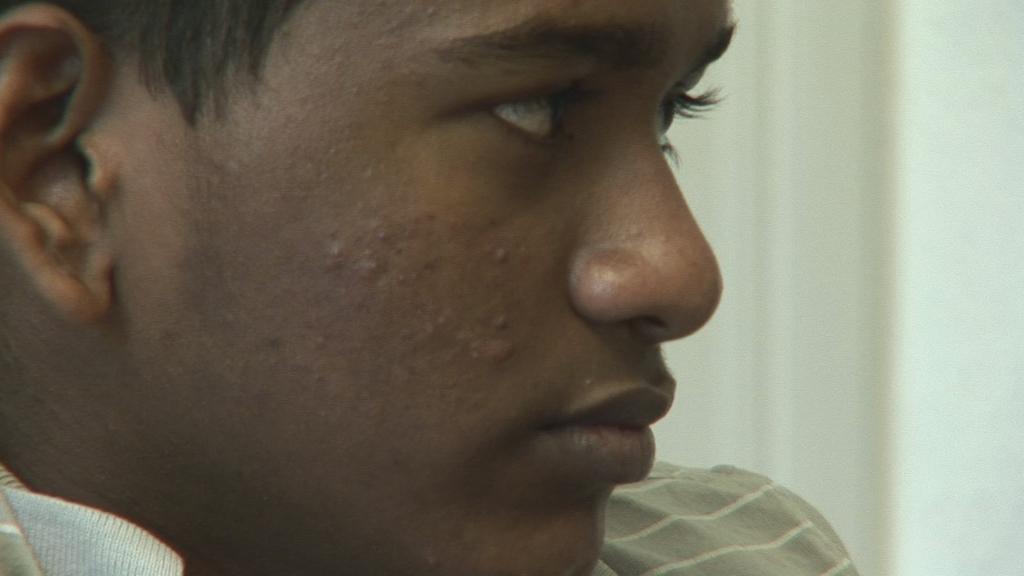
You can find an overview of ongoing debates with our journalists here. Please join us!
If you want to start a conversation about a topic raised in this article or want to report factual errors, email us at english@swissinfo.ch.